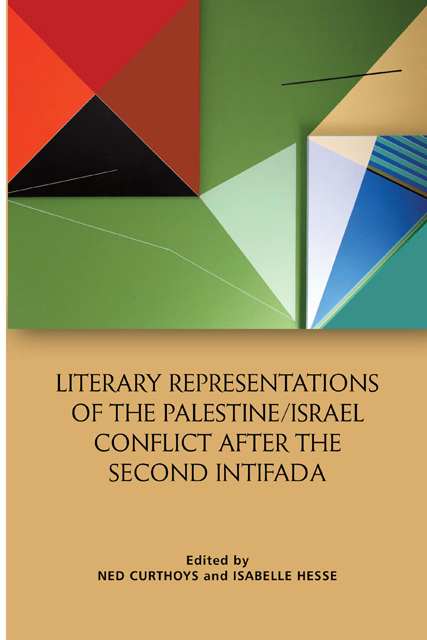5 - The Israeli/Palestinian Conflict in To the End of the Land: Some Thoughts on David Grossman’s Hebrew in Translation
Published online by Cambridge University Press: 07 June 2023
Summary
From experience I can say that the language used by the citizens of a conflict to describe their situation becomes flatter and flatter as the conflict goes on, gradually evolving into a series of clichés and slogans … The process eventually seeps into the private, intimate language of the citizens (even if they vehemently deny it).
(Grossman, Writing in the Dark 61)Despite David Grossman’s widely publicised views on the Israeli– Palestinian conflict and his ongoing critique of Israeli occupation, his 2008 novel Isha Borahat Mib’sorah (published in English as To the End of the Land, 2010) is his first significant fictional representation of the subject. Upon its publication, the novel received almost instant – though not undisputed – canonical status, attracting both praise and criticism for its ambitious familial-political scope. Arriving in the wake of the failure of the Oslo Accords, and engaging somewhat with the political escapist leanings of its time (Keren 247), the novel is Grossman’s urgent call if not for action, then for a thorough national self-examination.
The novel tells the story of Ora, a soldier’s mother who flees her home in order to escape a visit from the Military Casualty Notification Unit whom she is convinced are about to deliver the news of her son Ofer’s death in a military operation on Israel’s northern border. As she hikes through the Galilee with her companion, Avram, who is Ofer’s estranged biological father, Ora composes for Avram a portrait of the son he never knew, and this private biography intertwines with Israel’s history of conflict from 1967 until the year 2000. Through Ora’s hike-narrative, Grossman creates an intimate portrait of one family whose fate is shattered by the Matsav, and he does so while deploying his hallmark linguistic virtuosity which, as Avidov Lipsker-Albeck notes, is formed by and deeply grounded within Israeli and Hebrew specificities (212). In this chapter, I analyse a number of linguistically and culturally dependant features of the text in order to demonstrate how Grossman’s writing poses some challenges to the translation of his literary rendition of the conflict. The issues described here are not concerned with aspects of a particular translation or target language but rather with attempts to relocate to a disinterested space those linguistic events that mimic or analogise the conflict.
- Type
- Chapter
- Information
- Publisher: Edinburgh University PressPrint publication year: 2022



